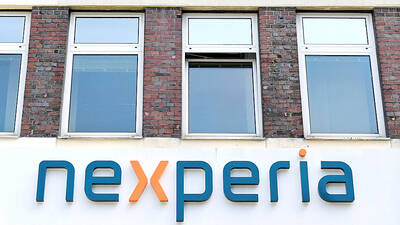Germany yesterday announced a ban on a jelling agent, konjac, which has been used in billions of sweets for children.
Konjac, also known as konnyaku, yam flour or glucomannan, is the key material in a childhood sensation known as Mini Fruit Jellys or Mini Fruit Cups that had to be pulled from shelves all over the EU and the US in January.
Served in tiny plastic cups that imitate grown-ups' ready-to-eat meals, the Taiwanese-made sweet is sucked into the mouth to be chewed slowly. However small children were at risk of choking if they swallowed the gel too early.
German Health Minister Renate Kuenast said she had decided to extend the ban from the product to all use of konjac as an ingredient. Sources said EU officials had agreed to a request from Berlin for konjac to be banned soon throughout western Europe.
The German ban is to take effect on Wednesday.
The US Food and Drug Administration said earlier this year there had been reports of four US children's deaths from choking associated with this type of jelly candy. Food safety experts spoke of up to eight deaths in Japan.
It is estimated that one Taiwanese company sold more than 3 billion pieces of the gel snacks.
In August of last year the popular jelly candy imported from Taiwan was pulled from US shelves of hundreds of supermarkets after it was blamed for the choking deaths of two children.
At that time two US grocery store chains -- Safeway and Albertson's -- announced that Jelly Yum brand candies and Fruit Poppers and Gelly Drop candies will be removed from its 2,500 stores nationwide, and bulk-goods store Costco ordered the candies off the shelves of more than 250 stores around the world, including 10 in Asia.
The candy is linked to the deaths of a 3-year-old an a 12-year-old last year in the US. In both cases, rescue workers said they couldn't dislodge the sticky gel from the children's throats.
The gel candies are individually packed in small, soft plastic cups and are sold in bulk in plastic jars.
The brightly colored candies have become popular over the last two years among American children after the treats met with success in Asia.
Health officials have warned the sweet gel does not readily dissolve in the mouth. Some jars carry a label warning that the candies are not safe for children under age 6, while others have said they are not safe for children under age 3.
At least a dozen deaths have been tied to the candy around the world. Most have been in Asia, where the candy originated in 1995. In Japan, the candy has gotten the nickname "deadly mouthful."
The Taichung County-based Sheng Hsiang Jen Foods Co (
"Whether it was a mini-fruity gel, a piece of meat, a hot dog, or any hard candy, the result could have been the same," a company statement on the matter said last year.

Jensen Huang (黃仁勳), founder and CEO of US-based artificial intelligence chip designer Nvidia Corp and Taiwan Semiconductor Manufacturing Co (TSMC, 台積電) on Friday celebrated the first Nvidia Blackwell wafer produced on US soil. Huang visited TSMC’s advanced wafer fab in the US state of Arizona and joined the Taiwanese chipmaker’s executives to witness the efforts to “build the infrastructure that powers the world’s AI factories, right here in America,” Nvidia said in a statement. At the event, Huang joined Y.L. Wang (王英郎), vice president of operations at TSMC, in signing their names on the Blackwell wafer to

AI BOOST: Although Taiwan’s reliance on Chinese rare earth elements is limited, it could face indirect impacts from supply issues and price volatility, an economist said DBS Bank Ltd (星展銀行) has sharply raised its forecast for Taiwan’s economic growth this year to 5.6 percent, citing stronger-than-expected exports and investment linked to artificial intelligence (AI), as it said that the current momentum could peak soon. The acceleration of the global AI race has fueled a surge in Taiwan’s AI-related capital spending and exports of information and communications technology (ICT) products, which have been key drivers of growth this year. “We have revised our GDP forecast for Taiwan upward to 5.6 percent from 4 percent, an upgrade that mainly reflects stronger-than-expected AI-related exports and investment in the third

RARE EARTHS: The call between the US Treasury Secretary and his Chinese counterpart came as Washington sought to rally G7 partners in response to China’s export controls China and the US on Saturday agreed to conduct another round of trade negotiations in the coming week, as the world’s two biggest economies seek to avoid another damaging tit-for-tat tariff battle. Beijing last week announced sweeping controls on the critical rare earths industry, prompting US President Donald Trump to threaten 100 percent tariffs on imports from China in retaliation. Trump had also threatened to cancel his expected meeting with Chinese President Xi Jinping (習近平) in South Korea later this month on the sidelines of the APEC summit. In the latest indication of efforts to resolve their dispute, Chinese state media reported that

CHINESE EXPORT CURBS: A dispute between China and the Netherlands could halt chip supply, affecting vehicle production, US and European auto associations said Groups representing major automakers late on Thursday warned that a chip disruption stemming from a dispute between China and the Dutch government could quickly affect US auto production. Automakers and their suppliers received notice from chipmaker Nexperia (安世半導體) last week that it could no longer guarantee delivery of its chips, the European Automobile Manufacturers Association said, adding that manufacturing could be significantly disrupted. In the US, the Alliance for Automotive Innovation, which represents General Motors, Toyota, Ford, Volkswagen, Hyundai and nearly all other major automakers, urged a quick resolution. “If the shipment of automotive chips doesn’t resume — quickly — it’s going to